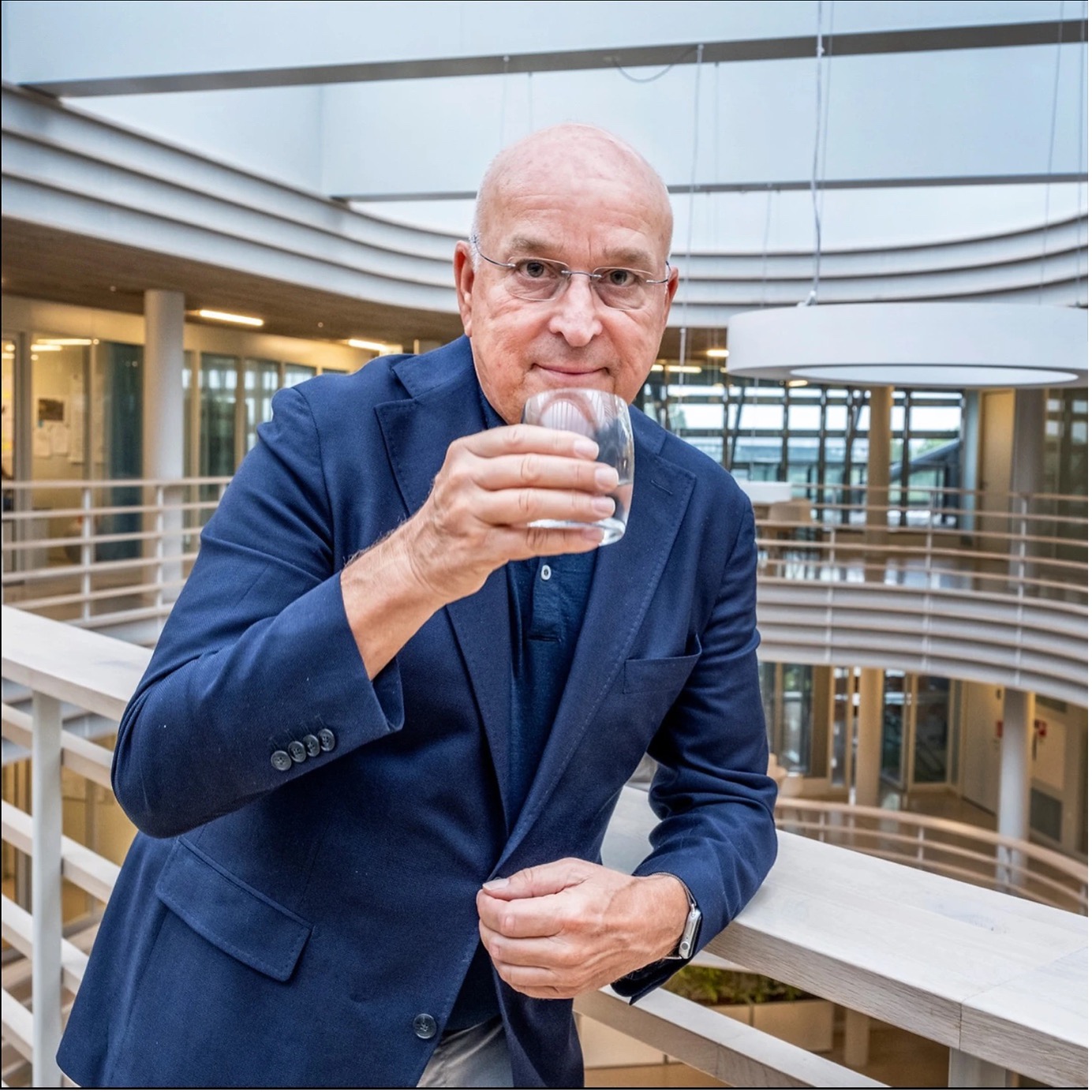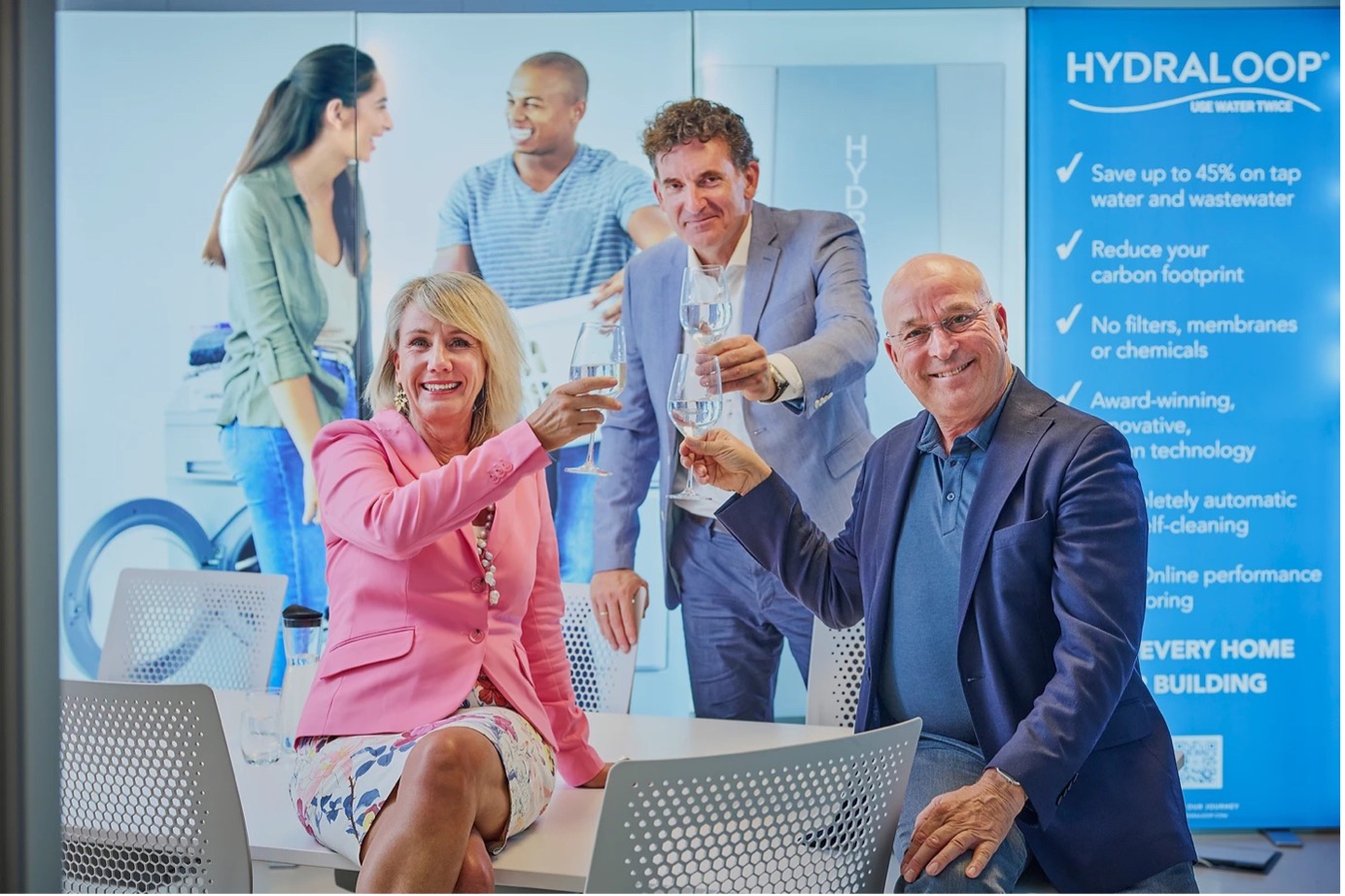5 minute read
Arthur Valkieser (Water Europe): ‘How do we get rid of the water shortage? We are drying out earth’
The summer of 2022 was the hottest summer ever recorded on the European continent, resulting in drought, forest fires, and water shortages. And despite the general thought that the Netherlands has too much water, much work also needs to be done in this country to avoid drying up. ‘You have to be resilient as a society in order not to become dependent on precipitation patterns,’ says Arthur Valkieser, board member of Water Europe, an advisory body to the European Commission on water quality.
On average, as much water falls down as precipitation every year. ‘This has been the case for thousands of years, just the pattern and location of where it falls are different. And so, as a society, you have to become resilient to these changing patterns and create a system that does not depend on these patterns and still protects groundwater levels from large fluctuations,‘ Valkieser told BNR Zakendoen during the Amsterdam Business Forum.
‘We are drying out earth’
And precisely that sinking groundwater is one of the main causes of drought in the Netherlands. ‘Currently, most of our drinking water is pumped from the ground. As a result, the groundwater level is sinking and we have to drill deeper and deeper. So we are actually marring the earth.‘
He continues: ‘It’s actually very simple, you have to start thinking circularly.‘ And then Valkieser points, among other things, to the purification process of water in the Netherlands. ‘The water utilities already purify water so well that it can almost become drinking water. You only need to add a little extra purification and with that, we’re able to take less water out of the ground, which brings nature more into balance, and dykes and house foundations are less affected.‘
On the contrary, what needs to be prevented is, for example, the desalination of seawater, which North Brabant now wants to do, says Valkieser, who also heads the company Hydraloop. The company specializes in purifying slightly used greywater from residential and commercial real estate in the building. ‘Desalination not only costs a lot of energy, but it is also harmful to the environment. They would be better off engaging with the water utilities to use their treated wastewater for drinking water.‘ According to Valkieser, this is now a tried and tested recipe. ‘This already happens in Israel and Singapore and the water in the Meuse consists largely of treated wastewater from treatment plants in Europe.’
The question is why it is not being done then. ‘This requires long-term vision and an objective. And that is missing.‘
Solutions at home
Apart from a task for water utilities, measures can also be taken at home. Only, water is now very cheap, so consumers have no reason to start saving water. ‘People primarily look at their wallets. And that is why it is important that new homes are built water-saving-ready. That should be included in the government’s building code, so the pipes are prepared, and then it is only up to the residents to start saving water themselves without sacrificing comfort.‘
Using, for example, recycled grey water for toilets, showers, gardens or washing machines requires separate greywater piping, so that it is not mixed with drinking water.
Cost
So apart from these measures, as far as Valkieser is concerned, the cost of water also needs to be looked at, despite the fact that water is currently very cheap. In this respect, the Netherlands could take an example from Belgium, where differentiated tariffs are used.
‘The first thirty thousand liters per person per year, that is 80 liters per person day, costs 4.60 euros per thousand liters. Above that, the price per thousand liters is almost doubled to 9.60 euros,’ says Valkieser. ‘This forces people to either be economical with water and take shorter showers, or to start installing a conservation system so that this more expensive price for water does not have to be paid.‘
The Netherlands still leading the way
And yet, as far as Valkieser is concerned, the Netherlands is also generally a leader when it comes to dealing with water. ‘We still have that lead, lots of companies have enormously good solutions for dealing smartly with water problems.’ And the market for these ideas, is huge and growing. ‘This water problem is everywhere, Belgium is number 22 on the list of countries with water problems.’
This article is a literal translation of the original Dutch article, written by Matthijs Meerman and Jorn Lucas, published on the website of BNR News Radio: https://www.bnr.nl/nieuws/duurzaamheid/10488513/hoe-komen-we-af-van-het-watertekort-we-mergelen-de-aarde-uit
More BNR about Hydraloop (in Dutch):
Listen to the podcast with Arthur Valkieser (Water Europe) on water security or to the plans of Hydraloop after winning several awards at CES2020, including ‘Best of the Best’ or check out the broadcast Pioneering Business Models – #12 Will Hydraloop be a global hit?





